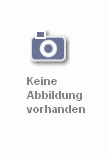Details

Negotiating past and present for a new identity. Contemporary Canadian Muslim writers and their manifold approaches
1. Auflage
|
29,99 € |
|
| Verlag: | Grin Verlag |
| Format: | |
| Veröffentl.: | 11.11.2020 |
| ISBN/EAN: | 9783346294944 |
| Sprache: | englisch |
| Anzahl Seiten: | 75 |
Dieses eBook erhalten Sie ohne Kopierschutz.
Beschreibungen
Scientific Essay from the year 2020 in the subject Literature - Canada, Comenius University in Bratislava (Philosophische Fakultät), language: English, abstract: This paper compares various contemporary Muslim writers from Canada and their negotiation with their identity. The choice of works tries to focus on the last decade and wants to show the multiple and flexible way these writers treat the key topic identity. All novels offer a comprehensive and detailed investigation into the concept of identity in contemporary literature from writers with a migrational background whose basis lies in the Muslim world and who know Canada since they have lived there or still do so. The generic and thematic diversity which is reflected in these books show the importance of these writers and throws light on their pluralistic concepts of identity which has and still enriches Canlit.
To better present the development of this part of Canlit the first and the last novel are discussed in more detail. The aim of this is to show the development this group of writers has made in such a short time.
Contemporary English literature investigates a wide range of issues such as theoretical and conceptual debates over modernity and contemporary, the history and practice of reviewing and / or writing in relation to nationhood, gender, religion or postcoloniality.
‘Muslim Writing’, as one branch of contemporary English literature is part of 'Postcolonial Writing’ which includes sub-genres such as the 'Postcolonial', 'Black British Writing', ‘British Jewish’ or 'British Asian'. The novelists which form 'Muslim Writing' dispose of a Muslim background which is first of all geographical and cultural and not necessarily religious. It is necessary to point this out that it is not Islam nor the religious as such which shape this term since some important writers like Salman Rushdie or (for the Canadian background Rawi Hage) are not religious in the sense that they are Muslims although India and the Lebanon dispose of a large Muslim community (in the case of Rushdie) are part of a large Muslim world (or in the case of Hage). Many of these writers such as Hanif Kureishi, Nadeem Aslam, Khaled Hosseini, Hisham Matar, Monica Ali or Anna Perera attempt to bring in this geographical, cultural or religious element by discussing and reflecting topics such as postethnicity, multiculturalism, minority, race, class, gender, religion, diaspora, community, universalism, particularism, Britishness language hybridity, belonging and above identity making. Although 'Muslim Writing' in general and 'Canadian
To better present the development of this part of Canlit the first and the last novel are discussed in more detail. The aim of this is to show the development this group of writers has made in such a short time.
Contemporary English literature investigates a wide range of issues such as theoretical and conceptual debates over modernity and contemporary, the history and practice of reviewing and / or writing in relation to nationhood, gender, religion or postcoloniality.
‘Muslim Writing’, as one branch of contemporary English literature is part of 'Postcolonial Writing’ which includes sub-genres such as the 'Postcolonial', 'Black British Writing', ‘British Jewish’ or 'British Asian'. The novelists which form 'Muslim Writing' dispose of a Muslim background which is first of all geographical and cultural and not necessarily religious. It is necessary to point this out that it is not Islam nor the religious as such which shape this term since some important writers like Salman Rushdie or (for the Canadian background Rawi Hage) are not religious in the sense that they are Muslims although India and the Lebanon dispose of a large Muslim community (in the case of Rushdie) are part of a large Muslim world (or in the case of Hage). Many of these writers such as Hanif Kureishi, Nadeem Aslam, Khaled Hosseini, Hisham Matar, Monica Ali or Anna Perera attempt to bring in this geographical, cultural or religious element by discussing and reflecting topics such as postethnicity, multiculturalism, minority, race, class, gender, religion, diaspora, community, universalism, particularism, Britishness language hybridity, belonging and above identity making. Although 'Muslim Writing' in general and 'Canadian

















